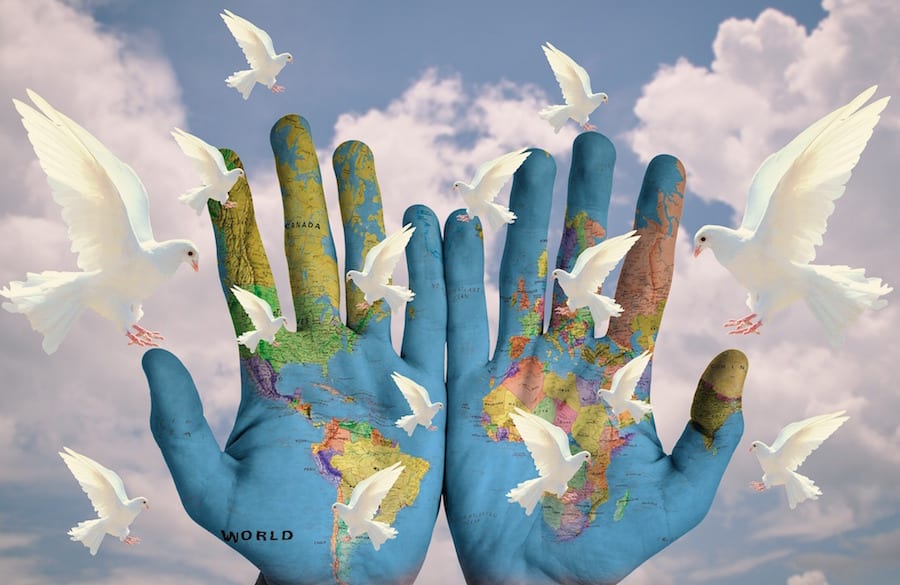Share this!
Combatting Negative Views of Traveling to Africa
So you’ve thought about traveling to Africa, but you’re thinking… between “Nairobbery” and the piracies off the coast of Somalia, “Black Hawk Down” and blood diamonds, Africa has earned a regular spot on travel advisories. It also doesn’t help that the slightest upset in peace and stability anywhere in the continent brings up unpleasant media images against all of Africa.
What many travelers don’t realize is that Africa covers more than 30 million km2 – the size of India, Europe and South America combined. Or three times the size of the United States or China, with a few hundred thousand km2 to spare.
So what does this mean to you? When travel bans are in effect in some parts of Africa, there are dozens more places to go.
And the myths perpetrated about Africa? Like myths everywhere, they are based on half-truths. If you dig deeper though, Africa is not just a place to get cozy with a lion or elephant or the lip-plated Mursi women. It’s a continent (not one huge country, by the way, lol) throbbing with the promise of economic development while still holding on to its prehistoric roots and primeval landscapes.
Consider these facts, and you will be surprised to know that –
Some African Countries Are More Peaceful than the US
According to the 2017 Global Peace Index, the “largest regional deteriorations in the score occurred in North America, followed by sub-Saharan Africa and MENA (Middle East and North Africa).” Of the 54 African countries, Botswana, Sierra Leone, Zambia, Ghana, Madagascar, Malawi, Namibia and Tanzania have “high states of peace” similar to the ranking of most European countries while the rest have “medium states of peace” similar to the ranking of the United States.

The only exceptions are Libya, Sudan, South Sudan, Central African Republic, Somalia and the Democratic Republic of Congo where the state of peace is very low. So if you are planning to see the lemurs, the Victoria Falls, the Skeleton Coast, or the Okavango Delta, now is the best time to go.
Mosquitoes and Monkeys Are Starting to Lose Their Bite
The mid-90s movie “Outbreak” helped cement the image of Africa as a voodoo place riddled with virulent diseases. It didn’t help that at the time the film was released, a real-life Ebola outbreak was occurring in Zaire (now the Democratic Republic of Congo), adding fuel to fire in the midst of that country’s political instability.

Today, if you were to look at the Centers for Disease Control and Prevention statistics between 2015 and 2016, only Sierra Leone, Guinea and Liberia have the most Ebola cases and contacts most likely due to sexual transmission. In the United States in 2014, one traveler returning from Liberia died from contracting Ebola, while the 3 others recovered and were discharged.
Malaria mortality in Africa has also dropped by 60% between 2000 and 2015 in large part due to the use of mosquito nets and insecticides. As a traveler, you can avoid getting bitten by infected mosquitoes by wearing long-sleeved shirts and pants, applying mosquito repellent lotion, using mosquito nets, and simply going to where malaria is non-existent (which is why Cape Town is a perennial favorite). Malaria vaccines are also available but you need to get them well in advance as your healthcare provider may not have a ready supply.
Solo Female Travelers Are Safe
It’s a fact that solo female travelers usually attract curiosity among the locals especially when going to the villages. There’s the requisite question of your name, age, status and why you are alone on your trip. In Morocco, going solo elicits unwanted attention from men who are typically relentless in their pursuit of even the tiniest acknowledgment.

A polite, firm and friendly ‘no’ to harmless but annoying offers should leave solo female travelers in peace. It also helps to cherry-pick spots in South Africa, Zanzibar, Mozambique, Uganda, Rwanda, Malawi, Kenya, and even Morocco that have earned reputations as female-friendly to make your experience less intimidating.
Like travel in any part of the world, it pays to keep your wits about. Travel during the day, used licensed taxis, don’t leave your drink unattended, avoid walking alone at night, and skip the flashy jewelry. In Islamic countries, follow the local dress code because you won’t get into sacred sites with bare shoulders and knees.
Cellphone Coverage Is More Common Than You Think
Don’t be surprised to meet a Maasai tribesman clutching a sleek smartphone. After all, there’s full 3G coverage in the Serengeti. Thanks to lower smartphone prices, a digital revolution is taking place in Africa. Smartphone connections have doubled over the last two years, with “almost half the population of Africa subscribed to mobile services in 2015,” according to a 2016 report by GSMA (Groupe Speciale Mobile).
And boys and girls clutching tablets and digital cameras? Well, some of the schools in Malawi and Ghana have even resorted to using mobile services to access learning resources online.
Wildlife Stay Where They Should Be
A common misconception of traveling to Africa is stumbling into a pack of hyenas in someone’s backyard. Unless that backyard is in Etosha or Kruger National Park, then chances of crossing paths with them are slim.

But there is some truth to the urban legend of wild animals spotted in the cities. Hyenas have long been part of everyday life in Ethiopia, and it’s not unheard of city children in Addis Ababa befriending some of them. This is more of a case of the city gobbling up wild urban patches where hyenas once lived, replacing them instead with malls and blankets of cement. It’s similar to finding wild deer in a golf course that has encroached on the native habitat of these animals.
Some of the World’s Fastest Growing Economies Are in Africa
The mid-80s famine in Africa has left such a lasting impression in mainstream media that even today pictures of (otherwise healthy) African children call to mind extreme deprivation of shelter, water, food, sanitation and education. It also didn’t help that in early 1990s, a picture of a vulture and a little skin-and-bones girl in a Sudanese village made international rounds and even won the Pulitzer Prize.

While there are still vast pockets of poverty in Africa, a handful of African countries are diversifying their agriculture-based economy and making a push towards manufacturing, energy generation, mining, telecommunications, banking and tourism.
As a result, Rwanda, Tanzania, Mozambique, Ivory Coast, Democratic Republic of Congo and Ethiopia have been cited by the World Bank as having posted the fastest growth (in terms of Gross Domestic Product) since 2014.
What this all means is you don’t have to rough it when going on an African holiday. Cities are abuzz with development to cater to changing tastes and lifestyles, benefiting not only locals but also visitors. Such a growth spurt translates to better accommodation, consumer services and infrastructure, so if you so choose, you can stay at a luxury safari lodge, overnight at an oceanview villa, wine and dine in a gourmet restaurant, or enjoy an epic ride on a sealed, signposted highway.






